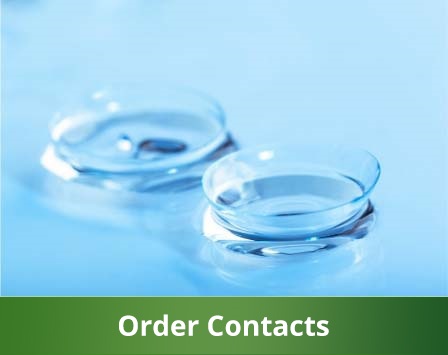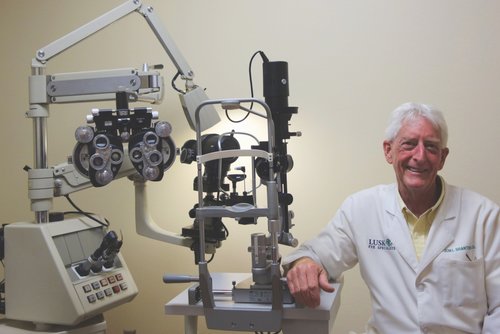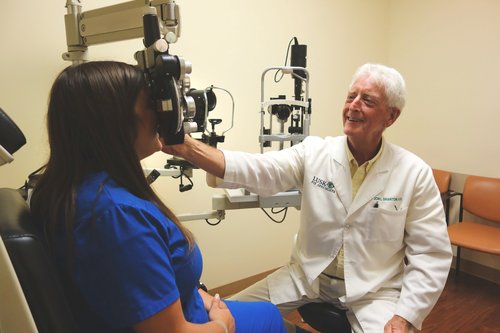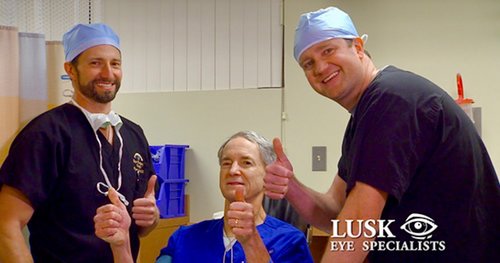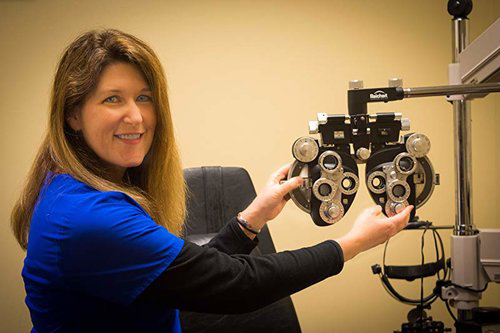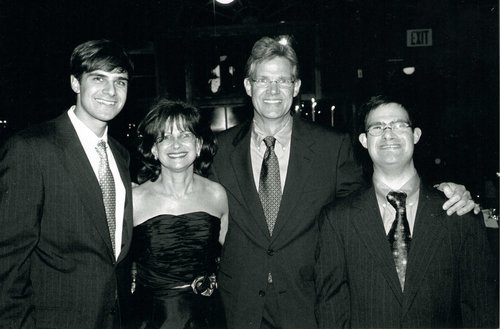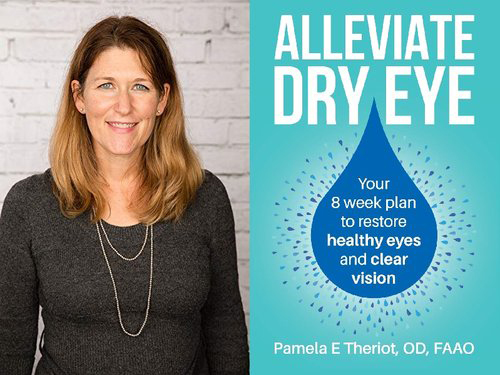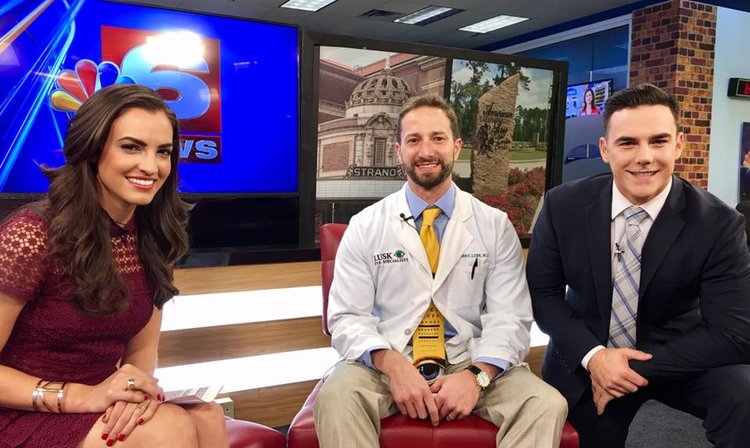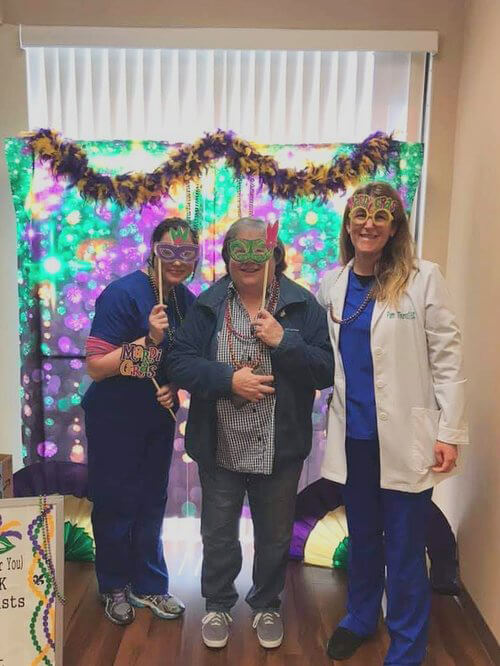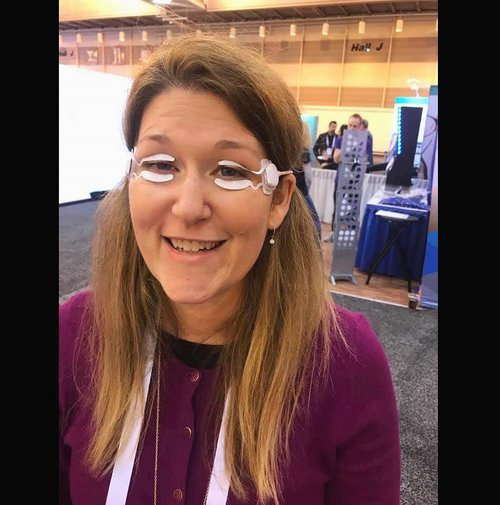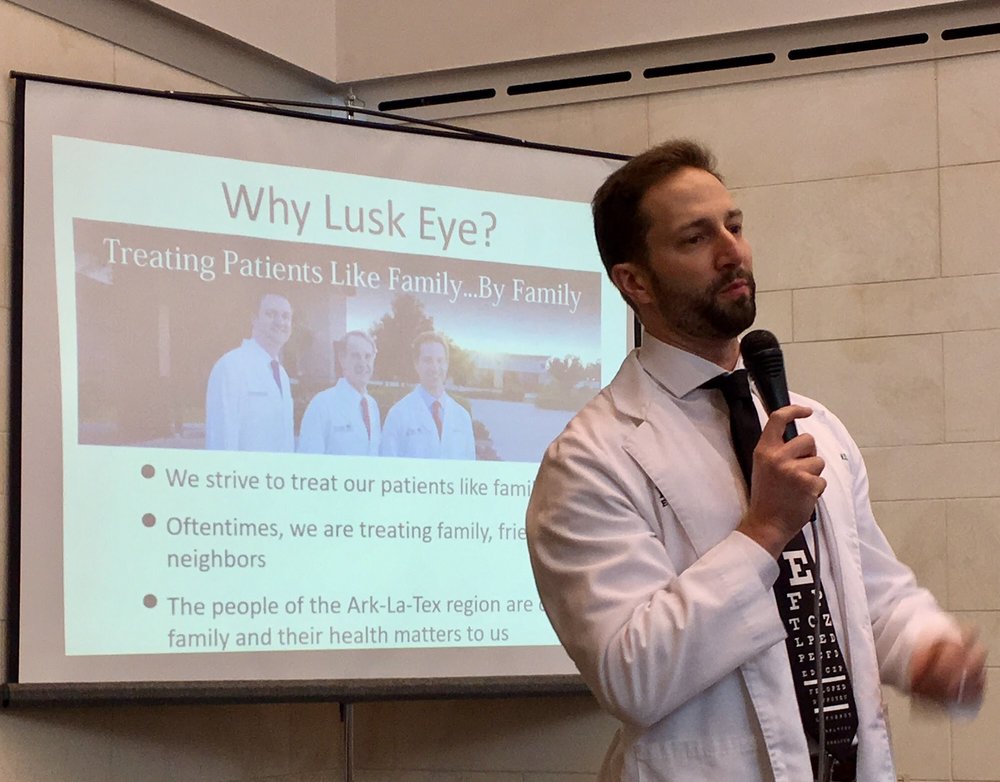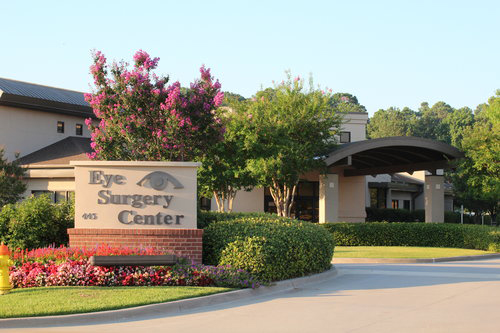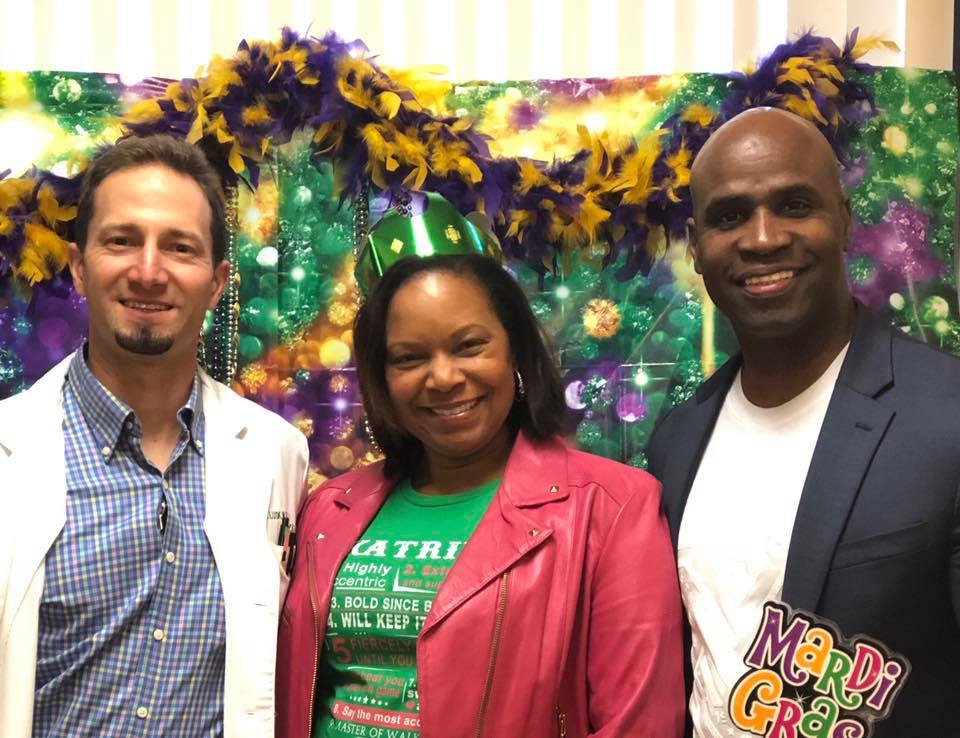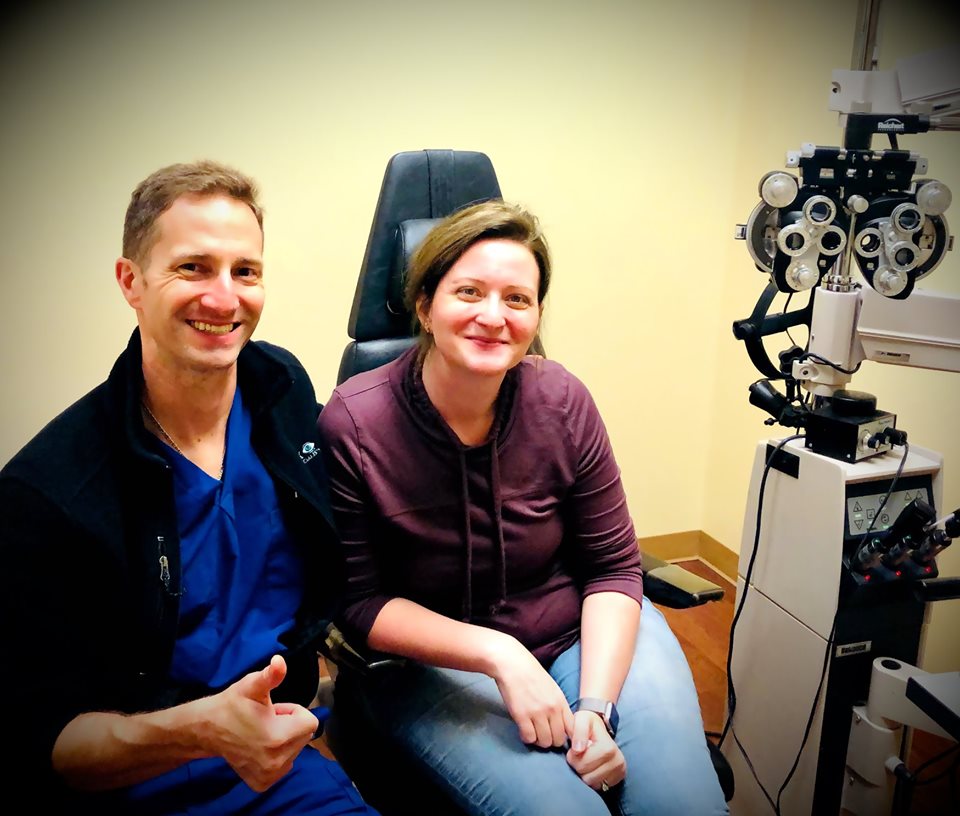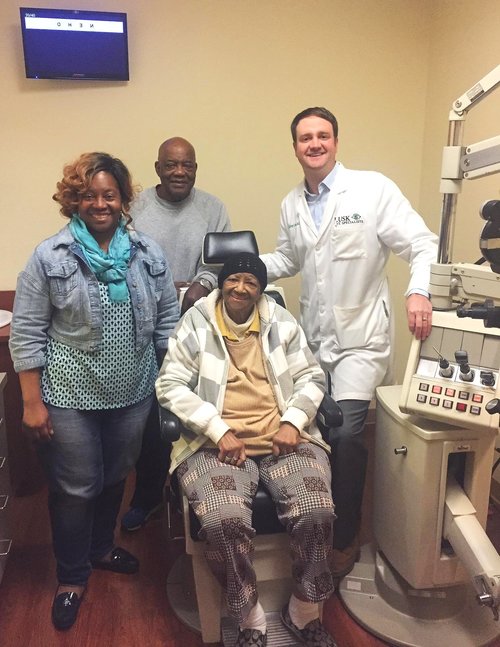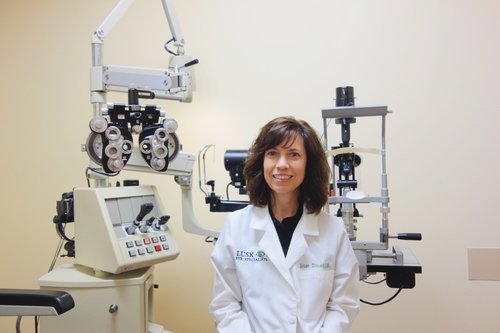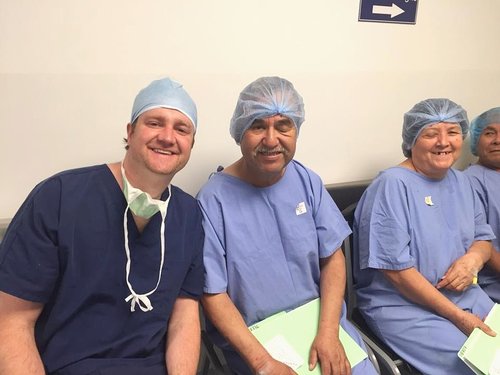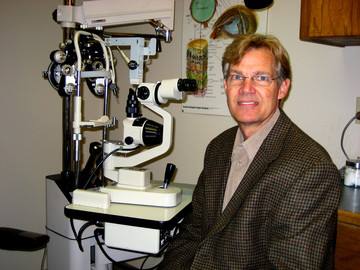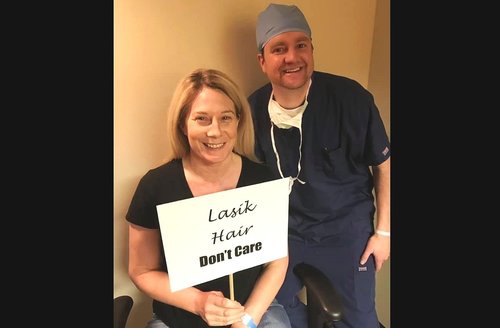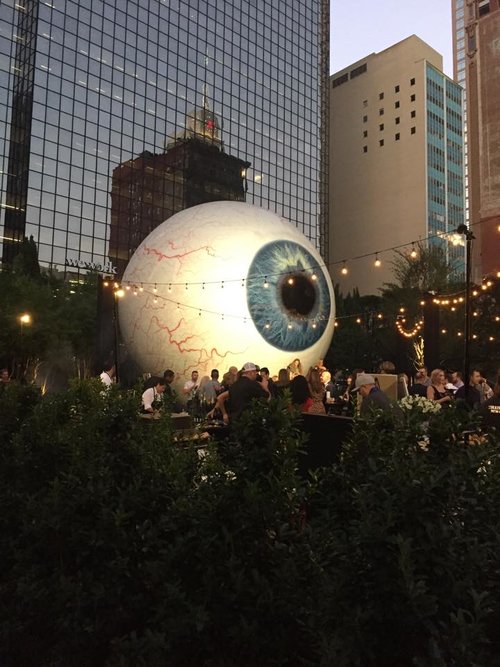How Do Cataracts Affect Vision?
Cataracts can be challenging to spot at first because they often develop long before most people realize they’re there. Age-related cataracts typically begin forming in your 40s, but many people don’t notice symptoms until their 60s or later. At Lusk Eye Specialists, we frequently detect cataracts in their early stages, but we also understand that patients aren’t specialists — you may not recognize cataracts until they start to noticeably affect your vision.
Cataracts affect vision by making it cloudy or blurry, and they can also reduce your ability to perceive color, light, and contrast. While cataracts can be treated effectively with surgery, untreated cataracts worsen over time and may eventually cause severe vision loss.
What Causes Cataracts?
The most common cause of cataracts is the natural aging process of the eye’s lens. Your eyes focus using both the cornea and the lens. The cornea is the transparent front of the eye that directs light, while the lens — a clear, flexible structure behind the pupil — refines that focus before passing images to the retina and then the brain.
Over time, the lens may lose flexibility or develop protein clumps, which scatter or block light and distort vision. Other contributing factors include certain illnesses that affect nutritional balance, trauma to the eye, and genetics.
How Do Cataracts Affect Vision?
Although cataracts are best known for causing cloudy or blurry vision, they can affect your sight in several other ways. Common symptoms include:
- Cloudy or blurry vision
- Faded or yellowed colors
- Increased glare
- Greater light sensitivity
- Reduced contrast sensitivity
- Poor night vision
- Halos around lights
- Double vision
It’s important to remember that cataracts worsen gradually. That’s why you can begin developing them in middle age without noticing until much later. While even advanced cataracts are still treatable, operating on them can become more challenging if they become very dense, although it is certainly not impossible.
How Do Cataracts Affect Night Vision?
Night vision problems are among the most frustrating symptoms of cataracts. Because cataracts reduce contrast sensitivity, they make it harder to distinguish objects in dim lighting.
Cataracts can also increase glare, halos, and sensitivity to light, making night driving particularly challenging. Even simple activities such as reading at night or viewing a lit dashboard can become difficult without treatment.
How Can You Prevent Cataracts from Getting Worse?
Once cataracts form, the only effective treatment is cataract surgery. Medications, special eyewear, or other remedies cannot stop their progression. During surgery, the natural lens is replaced with an artificial intraocular lens (IOL).
Unlike natural lenses, IOLs don’t age or develop cataracts. In fact, premium IOLs, such as the multifocal AcrySof® IQ ReSTOR® IOL, can often improve vision beyond what it was before cataracts.
Although cataracts themselves cannot be reversed, certain lifestyle choices may lower your risk of developing them or slow their progression. Protecting your eyes from excessive sun exposure, maintaining a healthy diet, and quitting smoking can all help support long-term eye health.
Cataract Surgery at Lusk
At Lusk Eye Specialists, we strive to make cataract surgery simple, comfortable, and effective. Using advanced techniques, we break up cataracts with high-energy sound waves before gently removing them through a tiny incision. The incision heals quickly without stitches, and you can return home the same day with your new IOL in place.
With two generations of eye doctors serving patients for more than 30 years, Lusk Eye Specialists combines family-focused care with state-of-the-art technology. We’re committed to helping you restore clear, reliable vision — and peace of mind.
Contact us today to learn more about cataract surgery and how we can help you see clearly again.


